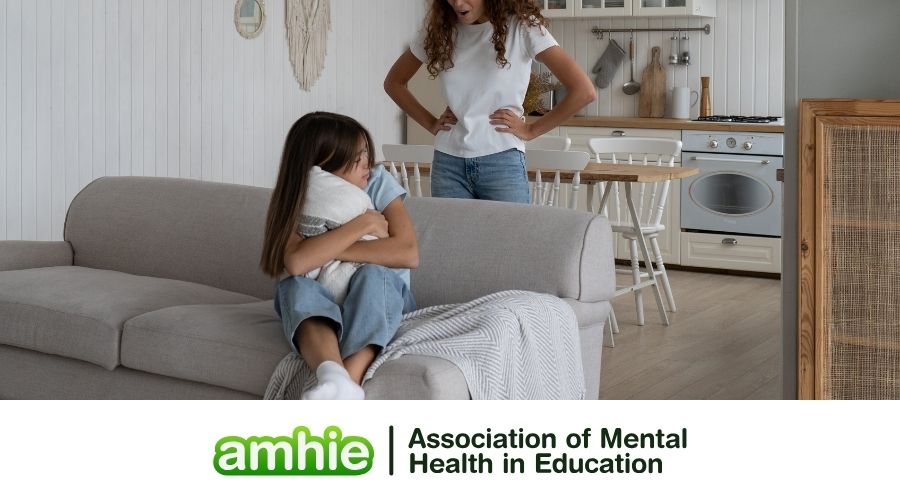
A new study reveals links between adult mental health and verbal abuse in childhood
This research from BMJ Open examines the relationship between childhood physical and verbal abuse and adult mental well-being. The study’s objective was to determine how exposure to either or both forms of abuse impacts mental health throughout a person’s life.
The authors utilised self-reported data from over 20,000 participants, focusing on trends in abuse exposure across different birth cohorts and associations with various mental well-being indicators.
A key finding highlights that both physical and verbal abuse independently contribute to lower mental well-being in adulthood, with combined exposure having a compounded negative effect, suggesting verbal abuse warrants similar attention to physical abuse in prevention efforts.
Citation: Bellis MA, Hughes K, Ford K, et al. Comparative relationships between physical and verbal abuse of children, life course mental well- being and trends in exposure: a multi- study secondary analysis of cross- sectional surveys in England and Wales. BMJ Open 2025;15:e098412. doi:10.1136/ bmjopen-2024-098412
Beyond the Bruises: The Silent Scars of Verbal Abuse on UK Children
This study sheds light on a silent crisis affecting the mental well-being of UK children. For decades, the focus of child protection has rightly been on physical abuse, but this research reveals that verbal abuse can be just as damaging, leaving scars that last a lifetime. The findings have profound implications for schools and underscore the urgent need for educators to re-evaluate their role in safeguarding and promoting student mental health.
This study challenges a long-held assumption: that physical harm is inherently more detrimental than emotional harm. The data shows that verbal abuse alone increases the risk of low adult mental well-being by a staggering 1.64 times—a figure almost identical to the 1.52 times increase associated with physical abuse.
When children experience both, the impact is compounded, more than doubling their likelihood of poor mental health outcomes.
The study paints a bleak picture of how this abuse affects specific aspects of a person’s life. Both physical and verbal abuse are linked to feelings of hopelessness and uselessness. However, verbal abuse has a particularly potent effect on social connection, increasing the likelihood of an individual never or rarely feeling close to others by a significant 90%.
A Shifting Tide: What the Data Tells Us
The research highlights a concerning trend: while physical abuse has significantly decreased among younger generations, verbal abuse has risen to almost 20% in those born after 2000. This suggests that gains made in reducing physical abuse may have been offset by an increase in verbal abuse, contributing to the rising mental health challenges facing today’s youth. The data suggests that for some, the cane has been replaced with harsh words, with similarly devastating consequences.
This shift places a greater responsibility on schools to be a sanctuary where children feel safe and valued. With children spending a significant portion of their lives in school, educators are uniquely positioned to intervene.
Taking Action: A Call to Educators
So, what actions can educators take to mitigate this impact?
1. Foster a Culture of Kindness and Respect:
Schools must move beyond a zero-tolerance policy for bullying to actively promoting kindness. This means modelling respectful language and behaviours in all interactions. Staff should avoid using shaming, sarcastic, or demeaning language, even when disciplining a child. Teachers should be mindful that a seemingly harmless, fleeting comment to a student could have a lasting impact. Training for all school staff, from teachers to canteen workers, on the damaging effects of verbal abuse and the importance of positive communication is vital.
2. Bolster Social-Emotional Learning (SEL):
Incorporating SEL into the curriculum is no longer a luxury—it’s a necessity. This includes teaching children about emotions, empathy, and how to resolve conflicts peacefully. By helping students develop a strong sense of self and the ability to articulate their feelings, schools can build resilience and equip them to deal with negative experiences.
3. Prioritise Mental Health Support:
Schools should expand access to trained counsellors and mental health professionals. Creating a safe space where students feel comfortable discussing their feelings and experiences is paramount. Regular check-ins and open dialogue about mental health can help identify struggling students early and connect them with the support they need.
4. Educate Parents and Caregivers:
Schools can play a key role in bridging the gap between home and school. Workshops and resources for parents on positive parenting strategies, the impact of language, and alternatives to verbal and physical punishment can help break the cycle of abuse. This proactive approach can help ensure that the valuable lessons taught at school are reinforced, not undermined, at home.
The findings of this study are a wake-up call. The well-being of a child is not just about what we protect them from, but also how we speak to them. By prioritising a culture of respect, bolstering social-emotional skills, and providing robust mental health support, UK schools can become powerful agents of change, helping to heal the invisible wounds of verbal abuse and build a more resilient generation.
Lily Blakeledge
3rd September 2025
The Team at AMHIE
Support from AMHIE
Get help to implement initiatives in the new academic year with AMHIE. We can help your team to develop and understand mental health and wellbeing using a whole school approach, as well as offer support, advice and resources to make things easier. contact our central team for guidance on how we can best support you: support@amhie.com or 02381120010.
